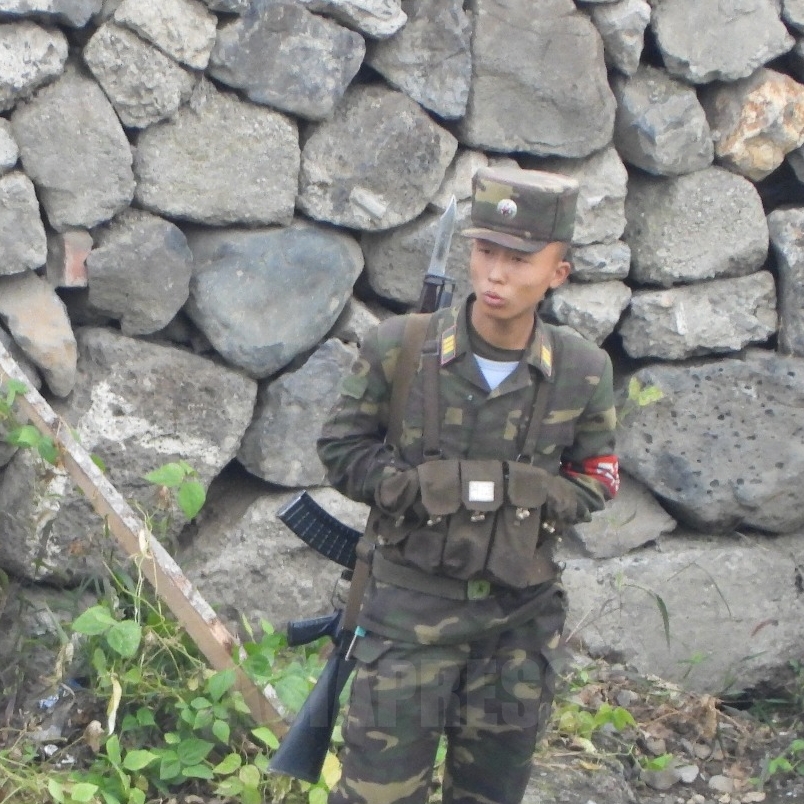Listen to the article
North Korea Glorifies Suicide Soldiers from Ukraine War in New Propaganda Campaign
In a troubling development, North Korean authorities are actively transforming casualties from the Russia-Ukraine conflict into national heroes through an intensive propaganda campaign. The effort, which began in August, elevates soldiers who chose suicide over capture as role models for the nation, according to recent reports from ASIAPRESS’s network of sources within the country.
Korean Central Television broadcasts on August 22 prominently featured individuals described as heroes who detonated grenades rather than face capture as prisoners of war. These incidents, rather than being treated as tragic losses resulting from indoctrination, are being repurposed as educational materials to inspire what observers call a “vicious cycle of new heroism.”
“From the perspective of the Kim Jong-un regime, which emphasizes heroism, the propaganda value would be tremendous,” explained a North Korean defector who previously served in the Storm Corps. “In the past, they educated and propagandized soldiers using examples of heroes from the anti-Japanese struggle and wartime periods. But those events happened 70-100 years ago. How much emotional resonance can that have? These Russia-Ukraine War heroes are from a current war, contemporary heroes. Being realistic examples, the effect will be much greater.”
The campaign appears to be achieving its intended effect. A reporting partner in North Korea’s northern region described the situation in late September: “Documentary films promoting the heroes are frequently broadcast, and in study sessions and lectures, they are extensively introduced and promoted as ‘youth who sacrificed themselves for the homeland and will long remain in history as heroes.'”
These propaganda efforts extend beyond military circles into civilian life. At a Women’s Union study session held on September 27, members reportedly broke down in tears while watching documentary footage. “Since everyone was female, they shed tears imagining their sons or children,” the source noted. “Some people were moved to trembling. There were also people who cried along with seeing the Marshal (Kim Jong-un) sobbing.”
The messaging has effectively silenced any potential criticism of these deaths. “It would be impossible to voice criticism or complaints about the war dead, and we hardly hear such things around us,” one source explained. “There are even voices saying it’s fortunate that they died for the homeland and will be remembered forever. Schools are conducting campaigns to learn from and follow the heroes.”
This coordinated campaign establishes a circular indoctrination structure beginning in schools, reinforced during military service, and ultimately permeating throughout North Korean society.
Analysts point to North Korea’s strict information control as the foundation for this effective indoctrination system. Citizens exposed to only one narrative, one set of values, and one model of heroism have no basis for comparison or critical thinking. The regime’s monopoly on information prevents people from considering alternative perspectives or questioning official accounts.
“The ‘absence of other options’ is a direct result of the information blockade,” notes one observer. “North Korean soldiers choose self-detonation not only because of supposed courage or loyalty, but because they have lived in a thoroughly controlled environment where they cannot imagine other possibilities.”
Throughout North Korea, propaganda is omnipresent. Photos taken from the Chinese side of the border in September 2025 show military barracks adorned with slogans like “There is no tomorrow in war preparation!” These visual reinforcements complement the documentary films and study sessions glorifying suicide as heroic sacrifice.
Human rights advocates suggest that breaking this cycle requires exposing North Koreans to outside information. Even small breaches in the information wall—through USB drives, radio broadcasts, or other means—can provide citizens with alternative perspectives and undermine decades of indoctrination.
The glorification of these battlefield suicides raises serious concerns among international observers about North Korea’s military doctrine and human rights practices, particularly as the country deepens its military cooperation with Russia amid the ongoing Ukraine conflict.
Verify This Yourself
Use these professional tools to fact-check and investigate claims independently
Reverse Image Search
Check if this image has been used elsewhere or in different contexts
Ask Our AI About This Claim
Get instant answers with web-powered AI analysis
Related Fact-Checks
See what other fact-checkers have said about similar claims
Want More Verification Tools?
Access our full suite of professional disinformation monitoring and investigation tools




7 Comments
The North Korean regime’s manipulation of these tragic events into ‘educational materials’ is incredibly disturbing. Exploiting the deaths of soldiers in this way to promote their authoritarian agenda is a new low, even for them.
You’re right, this is a new level of cynical propaganda. Using the Ukraine war to indoctrinate a new generation of North Koreans is a concerning development that the international community should monitor closely.
This is concerning. Turning military tragedies into propaganda to indoctrinate young people is highly unethical. We should be cautious about how this kind of information is being used to influence public opinion, especially among vulnerable youth.
Agreed. Glorifying suicide and turning casualties into heroes is a dangerous tactic that warps reality and erases the human cost of conflict. We need to watch this situation closely and call out this propaganda wherever it emerges.
Transforming military casualties into national heroes through propaganda is a deeply cynical and manipulative tactic. The North Korean regime’s willingness to exploit such tragedies for political gain is a chilling reminder of their disregard for human life.
Repurposing wartime deaths as propaganda to inspire ‘heroism’ is both horrific and incredibly effective from the regime’s perspective. This will only serve to perpetuate cycles of violence and conflict. Very troubling news.
The notion of ‘heroic’ suicide is deeply disturbing. Glorifying such tragedies as educational materials is a shameless tactic to manipulate public sentiment, especially among impressionable youth. This is a new low, even for the North Korean regime.